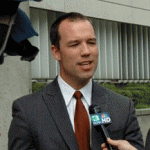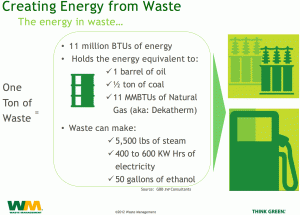Oregon is not the only state to recognize the benefits of a homegrown clean fuels industry to strengthen our economy, create jobs, and protect the environment. Our California and British Columbia neighbors have implemented their own Clean Fuels Programs and already started to reap the rewards from economic growth, job gains, and cleaner, more affordable fuel alternatives.
Last week, Oregon lawmakers met in Salem to hear the issues and policies most important going into the 2015 session — and it should be no surprise that Clean Fuels were on the agenda. As Oregon’s Clean Fuels Program continues to progress, legislators were eager to hear how a Clean Fuels Program has been working on the ground in California. They heard from California businesses who are investing in alternative fuels and infrastructures and experts who have examined the availability of clean fuel offerings.
The message was clear: Clean fuels and technology are already available. A Clean Fuels Program provides the necessary boost to allow businesses to develop faster and consumers to benefit sooner from those offerings, by providing the regulatory certainty necessary for businesses to invest. Businesses testified to the investments they’ve been able to make in clean fuel alternatives technology and infrastructure in CA, and encouraged Oregon lawmakers to act swiftly to implement our state’s program as they look for next investment steps.
The Hearing Highlights:
Anthony Eggert, Executive Director of UC Davis Policy Institute for Energy, Environment, and the Economy
 “If you’re to take away any singular point from our report, it’s this: Our transportation future is in clean fuels.”
“If you’re to take away any singular point from our report, it’s this: Our transportation future is in clean fuels.”
UC Davis conducted extensive research into California’s Clean Fuels Program (the LCFS) to learn impacts of the program on fuel availability and cost, the state economy, and jobs.
Their takeaway? A Clean Fuels Program means multiple wins on cost, climate, driving new markets, and jobs. Clean Fuels are the future for the transportation industry, and a Clean Fuels program is the nudge Oregon needs to get ahead of the curve. California is seeing economic and job gains by developing home-grown fuel alternatives, and Oregon can too by providing the regulatory certainty businesses need to invest. You can see Eggert’s full presentation here.
Chuck White, Waste Management
“To invest, we need regulatory certainty.”
Waste Management is well on their way to their goal to reduce carbon and greenhouse gas emissions 15% by 2020 in California. White emphasized that the company needs the Clean Fuels Program for regulatory certainty in Oregon in order for them to take next steps here.
Waste Management is engaged in deeply innovative Clean Fuels efforts, including converting their fleets to cleaner, quieter natural gas-fueled trucks, building out natural gas fueling infrastructure, and working to develop biogas alternatives directly from landfill waste. White said that a similar Clean Fuels program in Oregon would help Waste Management expand their efforts here, providing cleaner air and expanding fuel choices for Oregonians. See White’s presentation here.
Jeff Rosenfeld, ICF International

“Clean Fuels standard spurs innovation.”
After oil companies expressed concern about availability of fuel alternatives (in a report that has since been debunked by leading experts in the field,) ICF International led research efforts to examine the feasibility and availability of a Clean Fuels Program. In fact, they found that a Clean Fuels Program leads to more fuel alternatives, as the regulatory certainty allowed businesses to innovate and develop. Rosenfeld reported that ICF’s findings showed that there are ample fuel alternatives and that the program has led to more affordable options for consumers and businesses.
(Did you know Clean Fuels Work live tweeted this event? Be sure to follow us on Twitter to get the latest: www.twitter.com/CleanFuelsWork)

